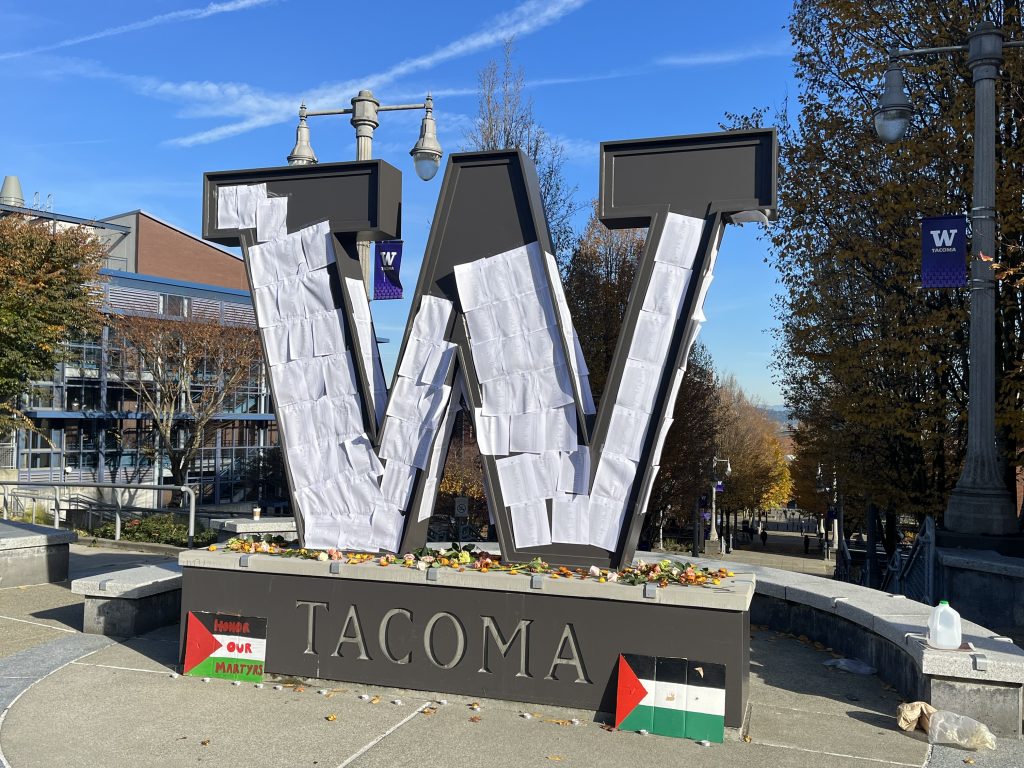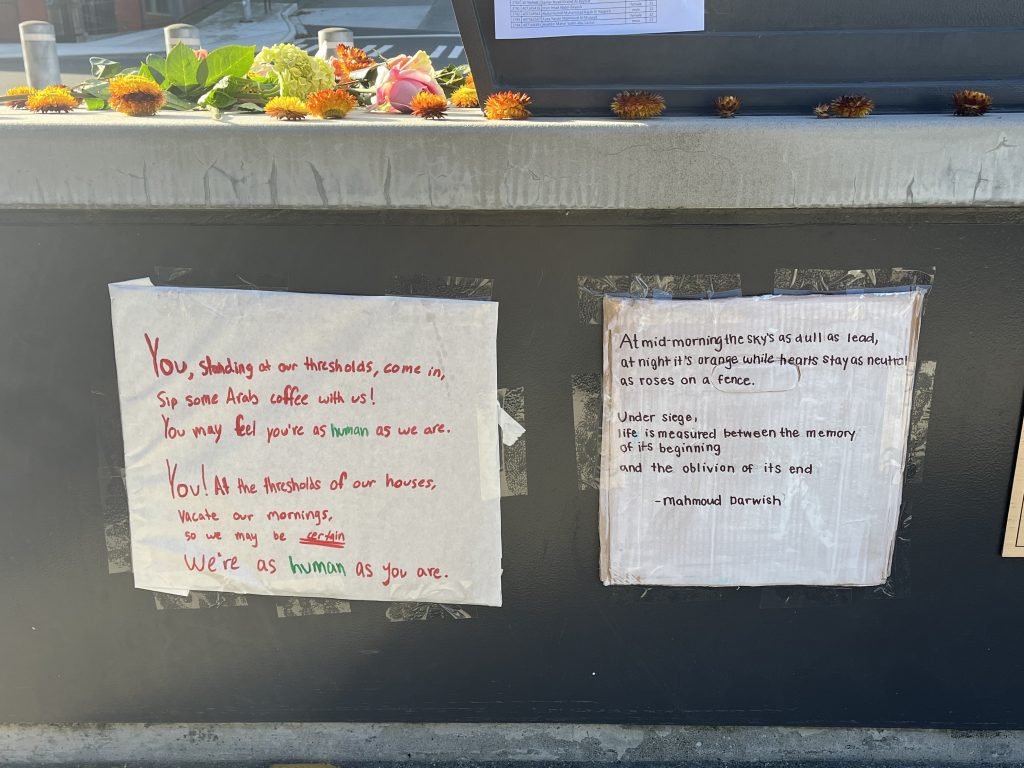The conflict between Palestine and Israel has left journalists at risk
Journalists covering the genocide in Gaza are putting themselves in danger for the cause.
I want to start this article by recognizing that I am not a primary source for this conflict, and I may miss or leave out some things. With that, this is a big topic so please feel free to email me at celiaw3@uw.edu with anything you would like me to know or any comments. I also want to stress that this is a very heavy topic and is something that can be triggering for some, so please consider your well-being before reading any further.
If you have turned on the T.V. or your phone or had any human interaction at any point in the last few months, you have heard about the conflict in the Middle East between Israel and Palestine. It has become one of the major conversations and has sparked a lot of outrage for those in Gaza and those trying to stay updated on the latest developments.
The conflict between Palestine and Israel has been at the forefront of a lot of media lately. Social media and journalism have been key in shedding light on everything happening and keeping those outside of Gaza updated on the genocide currently taking place. Journalists are being subjected to life-threatening conditions to spread awareness of the tragedy in hopes of gaining some support. Many have already lost their lives in the fight for a cease-fire.
In an article published by the Committee to Protect Journalists they reported that, as of December 21, 68 journalists have died, 15 have been injured, 3 have gone missing, and 20 have been arrested during this war. Of course, with any genocide or war, the numbers can be unreliable and are constantly changing, so this is something that will continue to be updated.
For the last month, I have been following a TikTok account that consistently posts videos from journalists, Bisan and Motaz, and footage they have captured of everything happening in Gaza around them. This account, @gazapressheroes, has been regularly updated and has shown the progression of this genocide and the toll it is taking on those being directly impacted.
From this account, I have witnessed these journalists losing significant weight and beginning to go prematurely gray from the stress and conditions they are in. These journalists have spent nearly three months subjected to horrible conditions in the hopes of ending this genocide. They have had to fight the elements and viral infections while having no or limited access to necessary resources like food and water.
Many readers and viewers have called attention to the noticeable deterioration in their appearances and are concerned with how rapidly it is happening. This small portion of the journalists’ day-to-day life is heartbreaking on its own. It hits even harder to have it sink in that this is all of Gaza’s reality, that it has barely been three months and we are seeing this sort of effect. It is truly chilling.
This is no longer a matter of beliefs or right and wrong. This is a matter of supporting or fighting genocide. Journalists should not be victims of war. Civilians should not be victims of war. Does it not matter that these are war crimes?
As an Indigenous person, I am overwhelmed and sickened witnessing the genocide unfolding in Gaza. As a fellow journalist, it has been inspiring to watch the journalists in Gaza and their fight to end this. My heart goes out to those suffering, those who have been lost, and their families.




